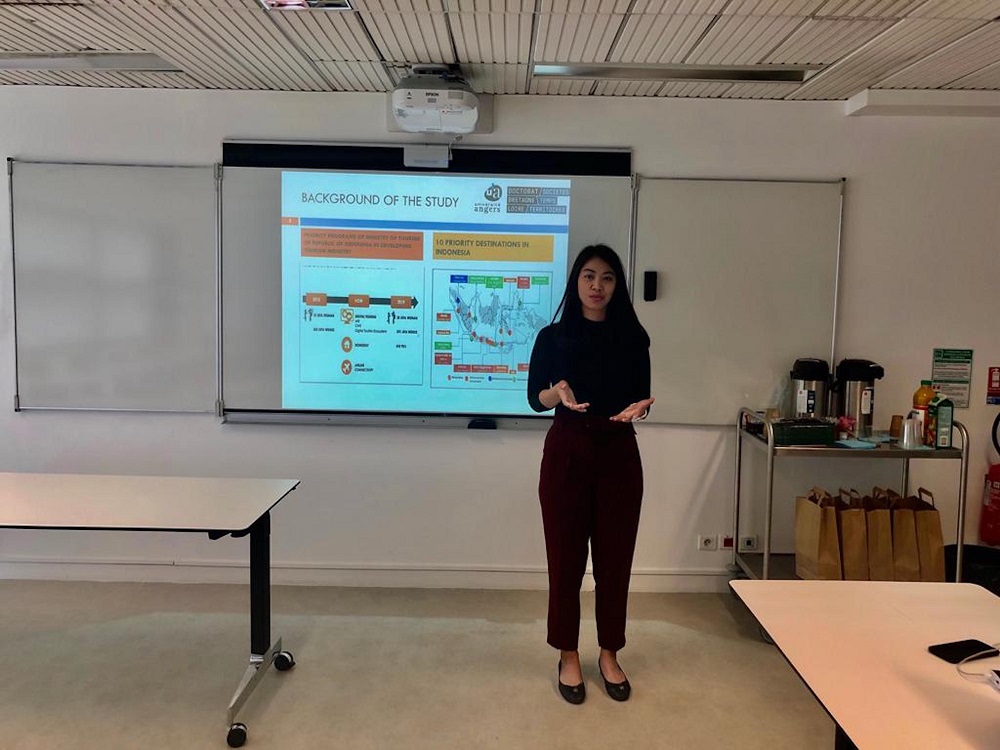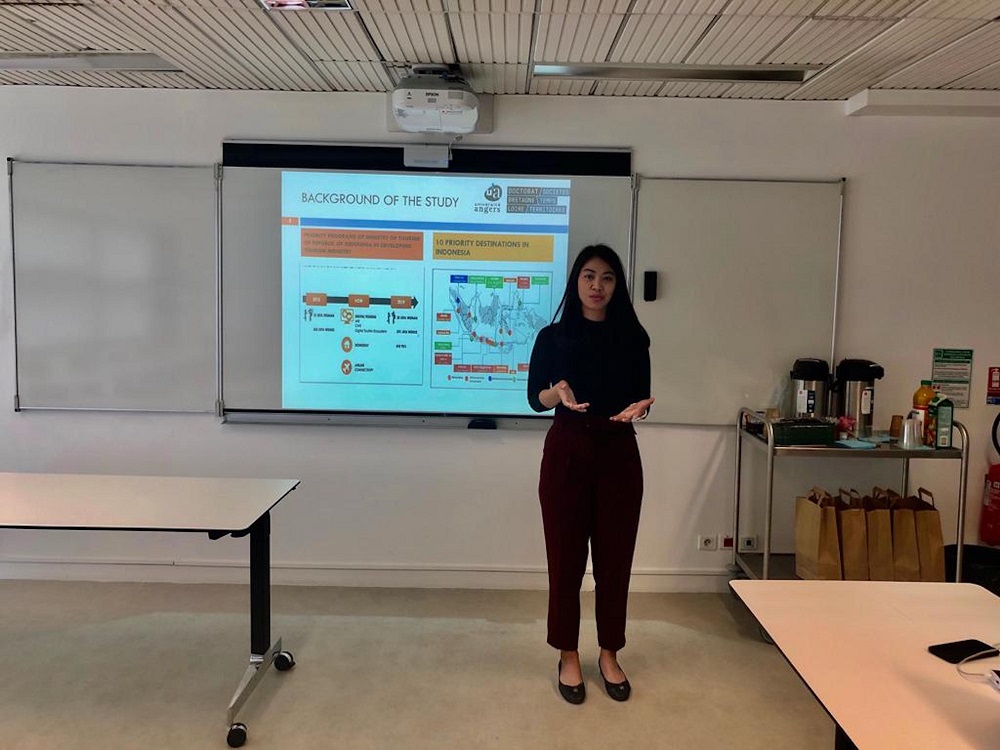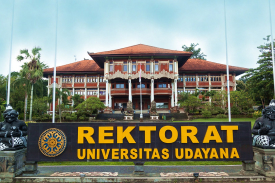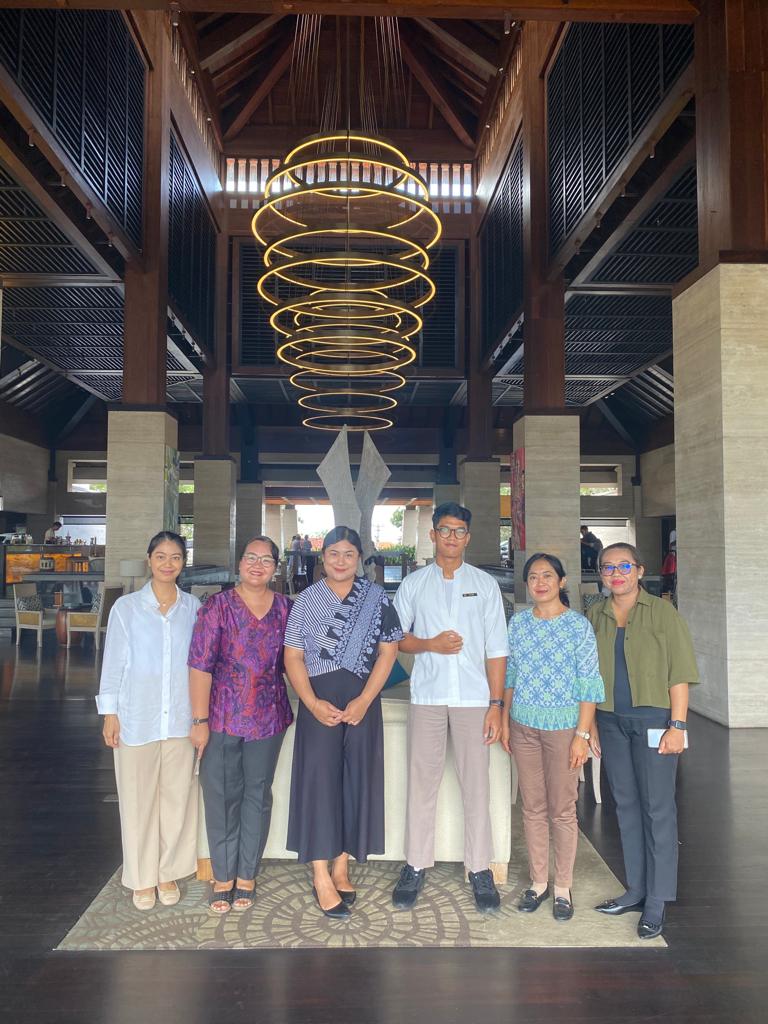STUDY ABROAD BY RATIH PERTIWI
My Name is Putu Ratih
Pertiwi, I have been becoming a member of Diploma IV Tourism Study Program
lecturer since 2014. Majoring in tourism
and hospitality, I teach some subjects such as Global Code of Ethic for Tourism,
Introduction of Tourism, Public Relations, and Bar Management. In terms of
researches, I have done and published a few journal articles related to
sustainable tourism, tourist village, accommodation service, and hotel
management. My roles in this position also include supporting community
services related with tourism and hospitality.
Becoming
a scholar in tourism studies, I expect to utilize my capacity to promote a
sustainable tourism development in Indonesia through implementation of
homestay. This is exactly what my PhD thesis entails. This research
investigates the implementation of homestay in establishing a more sustainable
tourism practice in Bali: can homestay be an agent of sustainable tourism in
Bali? Or in contrary, will it come to a price of socio-economic inequality and
the degradation of socio-culture as well as natural environment crisis? It is
prominent to examine the implementation of homestay through sustainability
tourism principles. As tourism research includes a wide range of methods
(Richards and Munsters, 2010), the association of qualitative and quantitative
approaches is used to answer problematic. The research outcomes are expected to
provide a sustainable tourism-based homestay model that suits Balinese context.
Through this model it contributes to: 1) sustainable development concept,
particularly in sustainable tourism by way of homestay implementation; 2) to
understand the phenomena of homestay implementation in Bali according to
homestay host experiences; 3) contributes to Sustainable Development Goals
(SDGs) 2030; and 4) the model will also be proposed as references for policy
makers to developing strategies regarding homestay implementation that is
appropriate for the situations and problems in local villages in Bali.
Sponsored
by Ministry of Education of Republic of Indonesia through scholarship of BPP-LN
Kemenristekdikti 2019, currently, I am attending the doctoral program in
Université d’Angers – a university located in the city of Angers in Western
France. Since I am majoring Tourism
Geography, I enroll my doctoral study in ED STT (Ecole Doctorale Sociétés Temps
Territoires) which its special core is Social and Human Sciences and afilliated
with UFR ESTHUA (d’Unités de Formation et de Recherche Etudes Supérieures du
Tourisme et de l’Hôtellerie de l’Univeristé d’Angers) it is a Training and
Research Unit of School of Tourism and Hospitality Management and Culture of
University of Angers, where I took my master degree 8 years ago.
ED STT itself is one of 11
Université Bretagne et Loire’s doctoral schools where its
members consist of 7 universities in Region of Bretagne (Brittany) and Region of Pays
de la Loire (Loire Countries/ Loire Land)
namely:
1. Université d'Angers
2. Université Bretagne Occidentale
3. Université Bretagne Sud
4. Le Mans-Université
5. Université de Nantes
6. Université de Rennes 1
7. Université Rennes 2
Those 11 doctoral schools to
be specific:
1.
Arts Lettres Langues (ED ALL)
2.
Biologie Santé (ED BS)
3.
Droit et Science politique (ED DSP)
4.
Écologie, Géosciences, Agronomie et Alimentation (ED EGAAL)
5.
Éducation, Langage, Interactions, Cognition, Clinique (ED ELICC)
6.
Matière, Molécules Matériaux (ED 3M)
7.
Mathématiques STIC (ED MathSTIC)
8.
Sciences de la Mer et du Littoral (ED SML)
9.
Sciences Économiques et sciences De Gestion (ED EDGE)
10.
Sciences pour l’Ingénieur (ED SPI)
11.
Sociétés, temps, territoires (ED STT)
Regarding the doctoral program in all university group of
Université Bretagne et Loire, including Université d’Angers, doctoral students must follow 100 hours of training
during the preparation of their thesis to get 100 credits as a condition for
applying our PhD thesis defense. The training is divided into two types, they
are Disciplinary Training and Professional Training. Disciplinary training is
organized by the doctoral school. These are scientific training courses in the
research speciality of the doctoral student, while professional training is
offered by the doctoral school and by the on-site doctoral colleges, these
training courses inculde management, ethics, preparation for career pursuit,
etc. In ED STT program particularly, we have to attend 40
hours of professional training to gain 40 credits and 60 hours of disciplinary
(scientific) training to gain 60 credits.
So far, there is no major obstacle
that I face during my study in ED STT. The
supervision, discussion process with the thesis director is
very routines. However, the COVID-19 outbreak has been generating to nation
lockdown policy, which has been also leading to particular implications
including the closure of the university as well as the laboratory. Therefore,
there were several formations that should be postponed; even so, there were
also certain formations that could be conducted online (I am very grateful
about this). Moreover, to enhancing literature reviews that still must go on,
accessing the scientific articles through open access journals is very helpful,
among them are HAL of Université d’Angers and ELSEVIER, both of them are
allowed me to have a free access through my Université d’Angers student account.
In soite of
that, I do really hope that the pandemic will end soon, so that the university
and its facilities will reopen. As the circumstance is back to normal, the
students will have the opportunity to attending campus activities including
offline classes, visiting the library, and also working in the laboratory
normally, it will help students optimize their study.




.jpeg)
FACULTY OF TOURISM